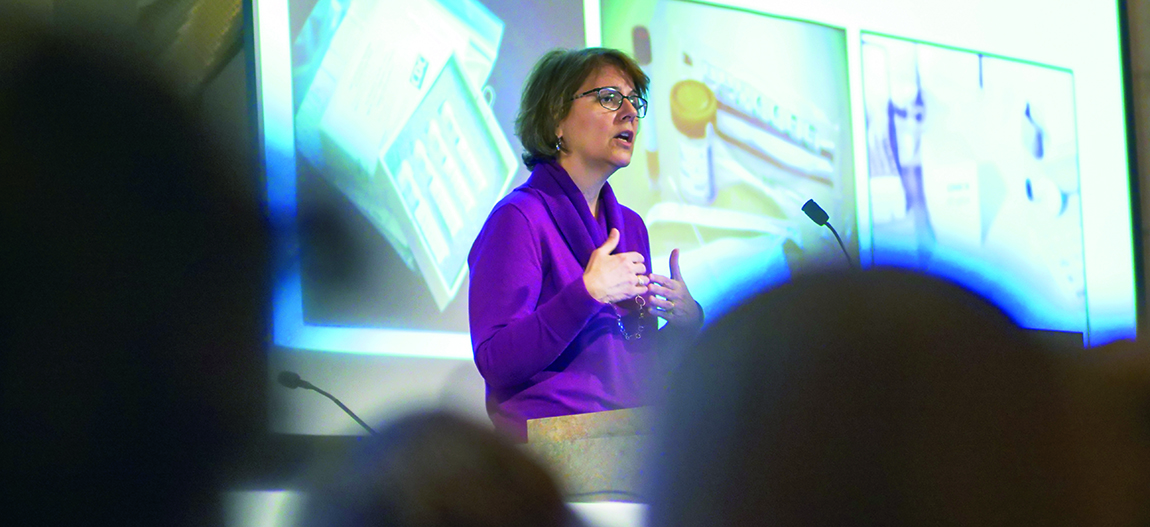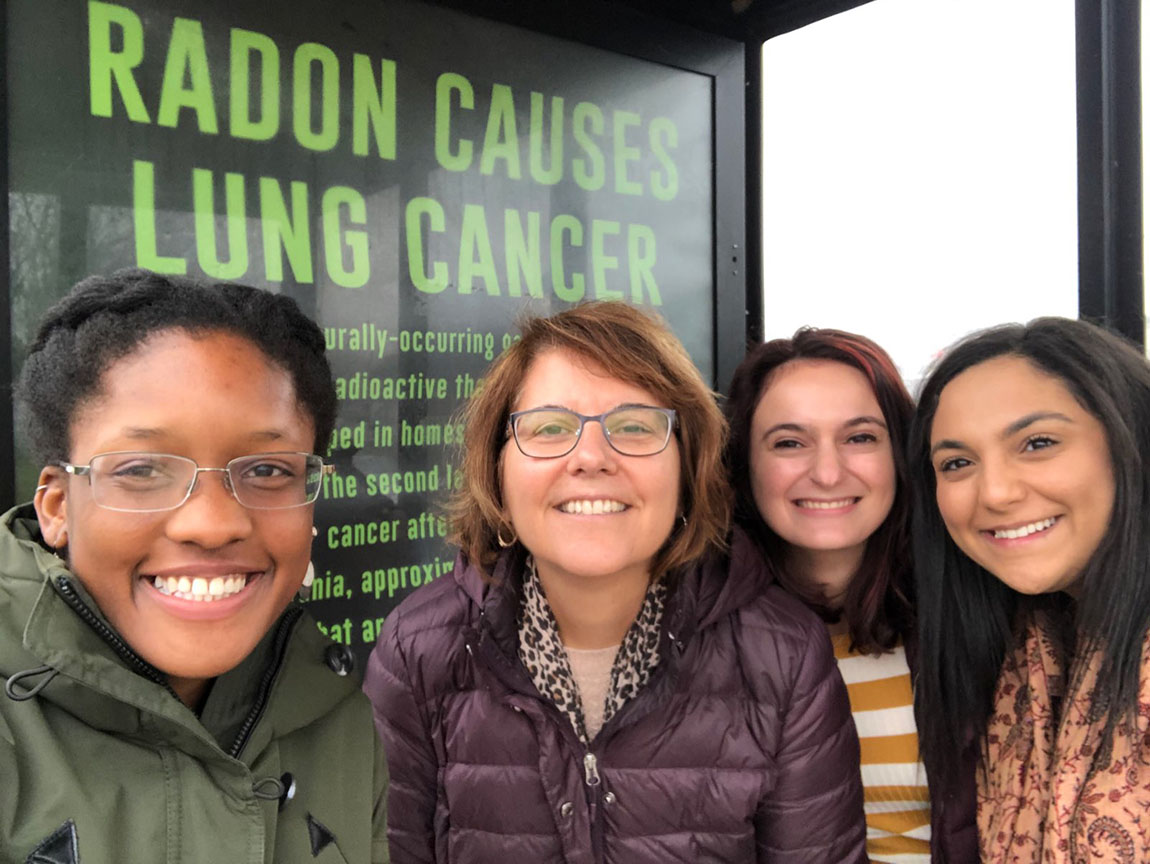Crisis Communication
Assistant Professor and Director of Public Health Chrysan Cronin takes her expertise beyond the classroom during the COVID-19 pandemic.By: Meghan Kita Friday, August 14, 2020 00:00 PM
 Assistant Professor and Director of Public Health Chrysan Cronin speaks during a COVID-19 panel in Miller Forum on March 10.
Assistant Professor and Director of Public Health Chrysan Cronin speaks during a COVID-19 panel in Miller Forum on March 10.The 12 seniors taking Infectious Disease Epidemiology this spring weren’t required to attend the weekly videoconference class meetings set up when coursework went remote due to COVID-19. But Chrysan Cronin, assistant professor and director of public health, says they all showed up routinely anyway—as did many of the 11 students who’d taken the course last fall.
“I don’t have students saying, ‘Why do I have to learn this? It’s never going to happen,’” she says.
While these students were already invested in public health, the appetite for information about infectious disease has never been greater. Cronin spent the first half of the year fielding interview requests from journalists, trying to communicate what science tells us—and what scientists don’t yet know—about this new-to-humans virus. Cronin, who has a doctorate from the Johns Hopkins Bloomberg School of Public Health, sees this as an opportunity to expand her role as an educator.
“I’m being able to use a different skill set than I use in the classroom,” she says. “It’s about how to practice public health instead of how to teach it.”
Cronin has been a key player in the College’s public health program since its inception. In 2004, the then dean of academic life identified the potential of adding such a program at the undergraduate level. Cronin, who was teaching biology at the time, was part of a faculty task force to design a public health minor, which debuted in the 2006-2007 academic year.
That’s also when Cronin returned to school to pursue a master’s in public health (she already had one in microbiology) from Johns Hopkins, one of the top-ranked public health schools in the world. She completed her master’s and doctorate while continuing to teach full-time at Muhlenberg, making the three-hour drive to Baltimore at least twice a week for six years.
As a doctoral student, Cronin was most interested in infectious disease research, but living far from Johns Hopkins labs would make that logistically challenging. A mentor helped steer her toward research on radon, a radioactive gas that can cause lung disease when inhaled at high concentrations over long periods of time. Pennsylvania’s buildings have some of the highest radon levels in the world. Cronin found an entry point when she noticed a wide variety in radon testing rates across Allentown.
“When I looked at testing rates by zip code, there were some zip codes in Allentown that had much higher testing rates for residential radon than other zip codes,” she says. “My questions were: Why? What is it about some of these areas where people aren’t testing?”
Muhlenberg students helped Cronin survey 550 Allentown residents to gauge how radon awareness, testing and mitigation varied across zip codes, education levels and various other demographic groups. Further research helped Cronin understand that the problem was one of communication and that Allentownians identifying as non-Hispanic were more than twice as likely to have ever heard of radon than those identifying as Hispanic. In 2018, Cronin and students conducted focus groups to better understand where Allentown residents find news and which outlets they trusted most.
Last fall, Cronin organized a radon symposium on Muhlenberg’s campus with guests from the Pennsylvania Department of Environmental Protection, the Allentown Health Bureau and the local hospital networks. The idea was to come up with ways to use research to enact change. Some of Cronin’s students who attended came up with the idea to advertise about radon’s risks within the Lehigh and Northampton Transportation Authority bus system. The state paid for ads, in both Spanish and English, to run on the outsides and insides of buses and within bus shelters. They read, “Radon causes lung cancer. Test your home. Save your life.”

Public health students (from left) Rashida Haye ’20, Brynn Cardonick ’21 and Meray Faragalla ’20 worked with Cronin on the radon campaign.
Cronin paused her radon work this spring in order to help with a student-driven program to train Lehigh Valley community members to administer Narcan, a drug that can reverse an opioid overdose. That project is on hold indefinitely—no one is sure when things like in-person training sessions can safely resume.
This time of uncertainty has Cronin thinking about the tabletop exercise on pandemic influenza that her Infectious Disease Epidemiology students would, in a typical semester, spend three or four class sessions working on. They imagine the disease making its way to campus and discuss how it should be handled.
“We end with, ‘Should we have graduation or not?’ We never get to, ‘Well, will we open the following semester?’” she says. “I think I’m going to have to redo that whole course, because we don’t work in what-ifs anymore.”
